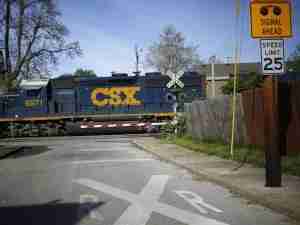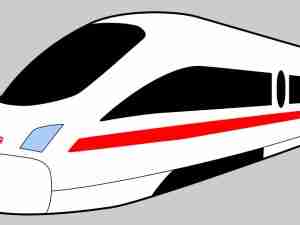The trains broke down years ago and many of the coach windows have been smashed, while the tracks they stand on are derelict.
Sudan was once home to Africa's largest railway network, with more than 5,000 kilometres (3,100 miles) of track running from the Egyptian border to Darfur in the west, Port Sudan on the Red Sea coast and Wau in what is now South Sudan.
Today, after decades of mismanagement and neglect, most of the country's rail track is out of service. But the government, with the help of Chinese money and expertise, wants to rebuild it and restore some of the industry's former glory.
Modernising the railways, Khartoum hopes, will boost the export of livestock and products such as cotton and gum arabic - an edible gum taken from acacia trees and used in soft drinks and drugs. That would help support Sudan's economy, which has been plunged into crisis by the loss of most of the country's oil production since it split from South Sudan in 2011.
"We need the railway," said transport minister Ahmed Babiker Nahar. "Road traffic is expensive. The railway is cheaper, faster, safer and has a bigger capacity. Livestock arrives in better condition by rail."
The government's plan will require considerable investment. State railway operator, the Sudanese Railway Corp., has just 60 trains left in operation. And they cannot travel at more than 40 kilometres an hour because the British-designed wooden sleepers and tracks, mostly laid between 1896 and 1930, are too weak.
"The entire rail network is broken down," said Makawi Awadh Makawi, head of the Sudanese Railway Corp. "We have no passenger trains operating anymore and transport only 10 percent of the cargo traffic in Sudan." Most goods are transported along Sudan's poor road infrastructure.
Makawi said China, Sudan's biggest aid donor and one of the biggest investors in the African country, and South Korea had agreed to replace and repair old freight and passenger trains. Khartoum is also in talks with Ukraine about buying trains and railway track.
He would not disclose details of the train contracts. China typically funds development projects in Sudan by granting loans which pay Chinese firms doing the work on the ground.
Chinese state firms built up much of Sudan's oil industry before the secession of South Sudan and have also built a major dam on the Nile, as well as cross-country roads and are due to build a new airport in Khartoum.
Sudan should become a transport route for some of South Sudan's oil production once the two countries can agree an arrangement.
As part of a drive in Africa to secure raw materials and oil, Chinese firms have also invested in Sudan's gold industry.
"We have a contract with the Chinese for 100 passenger and 100 cargo cars and another deal for 50 cars for oil tanks," said Nahar, adding that South Korea had delivered 13 locomotives so far.
Work to renew the rail tracks started last year when China's Shanghai Hui Bo Investment Co (SHIC) opened a plant in north Khartoum, opposite the Sudanese capital's main train station, and is producing 1,200 concrete sleepers a day, according to its Sudanese manager Sharaf Nasser.
Within two years, officials hope to renew between 1,000 and 2,000 kilometres of track across the country. In a first sign of progress, a daily cargo train has started running from Khartoum to Atbara, some 300 kilometres north of the capital, from where a line to Port Sudan is now being rebuilt.
Officials hope to restart the line from Khartoum to Nyala in Darfur via North Kordofan state, where most gum arabic is produced, although no start date has been set. A map in the manager's office of SHIC's plant marks the next vision: extending the rail line from Nyala into neighbouring Chad. Sudan announced plans this month to give Chad fixed storage space in Port Sudan to encou







